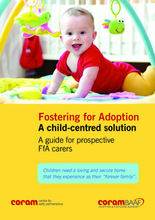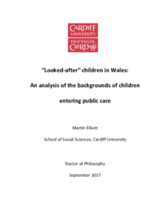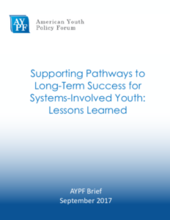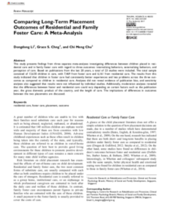Displaying 1531 - 1540 of 2221
This guide from CoramBAAF describes Fostering for Adoption (FfA) as "one part of that solution and is a route to achieving early permanence (an umbrella term which covers the placement of a child through FfA or concurrent planning – see below) for a child."
This study seeks to address a number of important questions with regard to children in public care, commonly referred to in the UK as ‘looked-after’ children.
This article examines how Russian SOS Villages are undergoing foster reform, which prescribes a transition from institutional care for children deprived of parental care to family care model.
This brief is a compilation of lessons learned from American Youth Policy Forum's (AYPF) last two years of work focused specifically on systems-involved youth.
This article discusses on-going foster care reform in Russia and analyses possibilities for the evolution of partnerships between stakeholders.
This study presents findings from three separate meta-analyses investigating differences between children placed in residential care and in family foster care with regard to three outcomes: internalizing behaviors, externalizing behaviors, and perception of care.
This paper addresses the challenges and benefits of involving biological parents in group homes in Israel and presents various means to encourage their involvement in care.
This paper reports the findings from a study investigating the priorities of care-leavers who arrived in England or Sweden as unaccompanied minors.
This paper presents the findings from a population-based, multi-stage random cluster knowledge, attitudes, and practices (KAP) survey of child caregivers in Liberia, revealing the primary reasons for parent-child separation and common misconceptions about alternative care.
This paper provides evidence-based guidance on the use of family interventions involving children with a history of institutionalization prior to their placement in family-based care through foster care, adoption, or reunification with their families.






